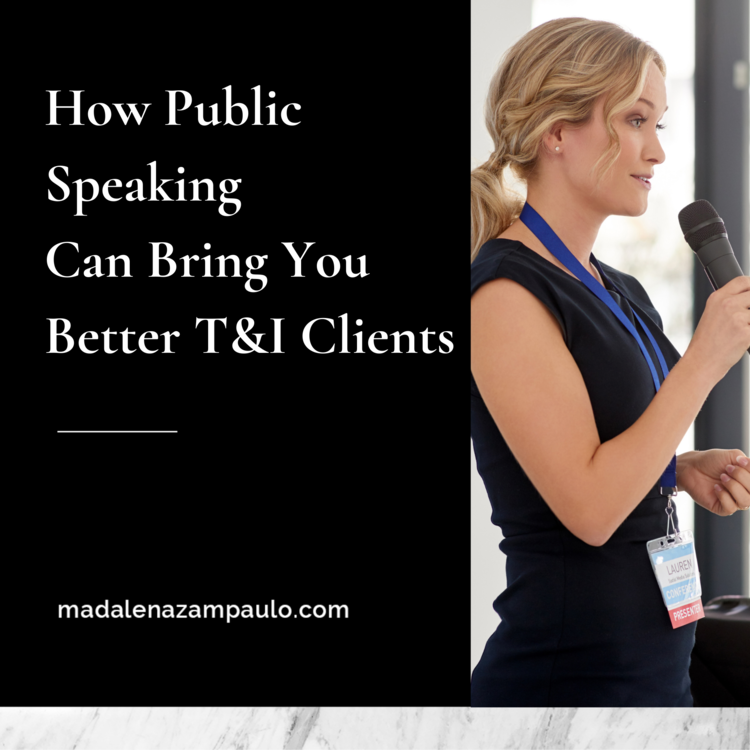How to Stop Competing on Price as a Translator or Interpreter
You know those emails you get from time to time with potential clients asking for your rates, or even giving just a little bit of information about their project--usually not nearly what you need--followed by a request for a "ballpark figure"? Yeah, you know the ones.
What is the one thing they really want to know? The cost. Most of these folks really just want to shop for your rates to see how much you'd charge them. Oh, and if you can turn it around "asap", that would be great, too.
So, you do what they ask and you give them your general rates, knowing full well that since you don't have enough information, or perhaps even the source document to review, the rates you gave them might not even be what you'll really need to charge them in the end. You go to the trouble of explaining all of this to them, using valuable time you could be spending more productively in your business. And then... they balk, and they walk. Many times they don't even respond. Well, what did you expect? They simply wanted to price shop you.
So, how do you avoid these types of price shoppers and their inquiries? Sure, they're bound to pop up from time to time for all of us. But there are ways you can avoid dealing with them as often.
Here are my six tips to stop competing on price and avoid dealing with price shoppers. Essentially, it all comes down to changing the way you talk about yourself and your services.
● Stop advertising yourself as someone who does compete on price. In your emails, on your website, and in your marketing content. You might be doing it without even realizing it. Many of us are guilty of this, myself included! And I didn't even know it at the time. What do I mean?
Have you ever thought about offering a discount, even to friends? Do you advertise your services as "affordable" or "competitive"? Both of these terms are related to pricing. If you want to earn what you feel is appropriate, this is not the best way to go about it. Cut these words from your vocabulary, and offer your rates confidently. Those who appreciate what you do for the quality and value you provide will pay your rates in the end. Even your friends.
● Stop offering "free quotes". I used to be so guilty of this. I had no idea the vibe I was giving by mentioning "free quotes" on my website until a friend who owns her own small business brought it up.
Of course your quotes should be free. If you're able to charge for them, I tip my hat to you. But stop talking about them being free. Anytime you give something away for free and label it as such, you are devaluing what you do, even if you don't mean to be.
To read more about this topic, check out Why You Should Never Offer a Free Quote on Your Website (or Elsewhere).
● Do some market research. Figure out a range of what colleagues charge for your same specialization and language pair. If you are below the range, it's time to raise your rates. After all, you don't want to be the one who's poisoning the proverbial market well, right? Stay away from open discussions in which others are trying to influence or set rates, but do your own research to make sure that you're at least charging a reasonable amount for your professional services.
● Or simply… raise your rates. Yep, I said it. Raise them and you will ensure that you can no longer compete on price. It may hurt for a little while, but you'll quickly realize that you do have clients who are willing to pay your rates, even if just a few in the beginning. Now, it's time to find more clients like those! They're out there. I promise.
● Prove yourself by showing your value so that your rate is ultimately the last thing people inquire about. People want to work with you because they like and trust you. They'll be happy to pay your rates as long as you have properly demonstrated your value and translated (sorry for the pun) that value into something they can easily understand, appreciate and want for themselves.
● Leave your rates off your resume and skip the price/rate sheet, too. If you've ever been to a restaurant that doesn't have prices on the menu next to the dishes, you might automatically think you have chosen an eatery that is either very chic or far above your means, right? When you leave your rates off your resume, you are doing two things: 1) you're allowing the person who reads your resume to focus on something else: your value! and 2) you give them a chance to actually ask for your rates. If they make it to step two, that means they've probably read your resume and have a real interest in working with you on their next project. Of course, this won't always be the case, but at least you can keep the conversation going a little longer and have the opportunity to discuss their project further to show that you're the right fit for them.
When you stop competing on price, you start to realize that you've essentially made all of your clients ideal clients. They'll be the ones who are willing to pay your rates and not ask you to lower them because they actually value what you do and consider you to be a part of their team.
If you feel that you're constantly getting price shopped, it's time to take a hard look at how you're advertising (or simply talking about) your services, whether on social media, your website, in your emails or in your directory listings. Figure out what your value proposition is and base your pricing on this. What value do you bring to a client beyond the services you provide?




